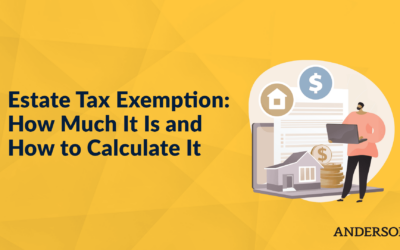If you’re new to real estate investing, you may be wondering how to buy a piece of property with an LLC. Clint Coons, Esq. explains.
Updated September 26, 2021
Real estate investors know they should acquire property in an LLC. But why buy in your own name if you’re going to turn around and deed it into an LLC? This raises the question of how to actually buy property in the name of an LLC.
Financing a Real Estate Purchase with an LLC
Ultimately, a big component of whether you’ll be able to close directly within an LLC is the financing involved, if any.
If you’re buying with cash, then closing in your LLC will present no issues. If you’re using traditional financing (Freddie/Fannie loan), and if the property itself is residential, then you’ll be required to close in your own name. Buying that property in an LLC is a non-starter. Don’t even attempt to put a deal together in your LLC if you’re using a traditional Freddie/Fannie loan.
This is not the case if you’re using a community lender (not Freddie/Fannie), called a portfolio loan. These types of loans are different from traditional loans because community lenders don’t intend to sell your loan. This means they have different guidelines. If using a community lender like this, then the lender will probably allow you to close in your LLC.
And here’s something else to consider when thinking about closing in the name of an LLC: how was the purchase and sale agreement put together? Was it written between yourself and the seller, or did you leave yourself some wiggle room?
Many times, people don’t follow my advice, and it leaves them scrambling when it’s time to close. I recommend setting up multiple LLCs and have them sitting on the shelf ready to go when a deal arises (what I call on-the-shelf shelf LLCs). This way, the LLCs are already formed and good to go.
If you have a subscription to Procrastinator’s Monthly and you’re slow on that, then write up the purchase and sale agreement with the language “Your Name and/or designated entity.” Use “and/or designated entity” instead of “and/or assigned” because “and/or assigned” is viewed skeptically by sellers and their agents.
If ever questioned about this language, I explain to the seller or their agent that I used “and/or designated entity” because I’ve not yet talked to my tax professional or attorney about how I need to take title for estate planning or tax purposes. My professionals may advise me to take title in the name of an LLC, so that’s why the additional language — because I may close in an LLC.
This explanation works. In my experience, no one’s ever rejected it. You’ve told them your professionals advised you to close in this way. The agent does not want to get into the business of practicing law without a license, so they’ll often back down when you give that rationale.
What it boils down to is this: if you’re using anything other than traditional financing, you can usually close directly in your LLC.
One thing to keep in mind if you’re closing in an LLC: make sure the LLC doesn’t use a nominee. The problem with using a Nevada LLC with a nominee manager, for instance, is that your name will not be listed on the Secretary of State’s website. This will create title issues when trying to close in the name of that LLC and give your lender heartache. Thus, you should set up an LLC where your info will be publicly visible.
If you’re after anonymity, then what I often tell people is to set up a fresh new Wyoming or Delaware LLC where your information isn’t provided to the Secretary of State in those states, then use that entity to close. Title companies and lenders will then want to see the operating agreement showing you as the manager and member of that company.
What’s funny about this strategy is that, sometimes, the lender will come back and ask me (or my clients who’ve done this) to update the state with my information. This is a funny situation because I then get to tell the lender, “That’s impossible. The state doesn’t accept that information. Even if I sent it, the state wouldn’t put it up.” The response to this is usually “oh okay, we understand” — as long as they have the operating agreement that shows you’re the owner and manager. So, you want to make sure that either your name is listed on the entity itself as a member of manager with the Secretary of State where the LLC is set up, or use a Wyoming or Delaware LLC that offers anonymity.
Finally, there’s one more detail to pay attention to: a certificate of good standing. This typically needs to be acquired within 30 days of closing. Be prepared to obtain a certificate of good standing by requesting it from the Secretary of State. If you don’t have this, it will delay your closing.
Of course, if you’re buying with cash or have private money funding the deal, none of these things are going to be an issue. When working with lenders, however, these are some of the things to take into consideration:
- Set up the LLC ahead of time
- Make the offer in the LLC
- If not, use the language “and/or designated entity”
- When you go to closing, have your operating agreement ready for title and the lender
- Also, make sure you have a certificate of good standing
As always, take advantage of our free educational content and every other Tuesday we have Toby’s Tax Tuesday, another great educational series. Our Structure Implementation Series answers your questions about how to structure your business entities to protect you and your assets. One of my favorites as well is our Infinity Investing Workshop.
Additional Resources:
- Join our next Tax & Asset Protection event to learn more advanced tax minimization & entity structuring strategies
- Subscribe to our YouTube channel to make sure you never miss the latest strategies & updates
Bonus Video
Free Strategy Session with an Anderson Advisor
Receive a detailed risk assessment to assist in lowering problem areas that could wipe out all of your assets with one wrong move. Speak with an Anderson Professional Advisor to get your FREE Strategy Session.
Limited-Time Offer: ($750 value.)














